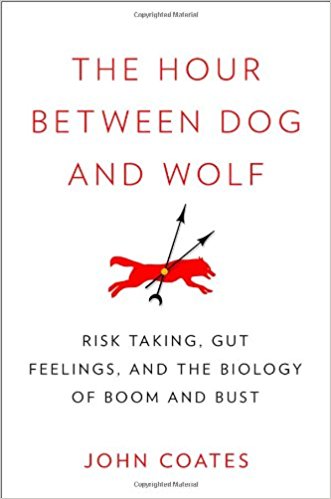We hope you love the books people recommend! Just so you know, The CEO Library may collect a share of sales or other compensation from the links on this page.
This book has 1 recommendation
Nassim Nicholas Taleb (Flaneur)
I read this book after completing my exposition of overcompensation, how a stressor or a random event causes an increase in strength, in excess of what is needed, like a redundancy. I was also looking for evidence of convex reaction to stressor, or the effect of a mathematical property called Jensen's inequality in domains and found it exposed here (in other words, why a combination low dose (most of the time) and high dose (rarely) beats medium dose all the time. The authors presents the evidence for the phenomenon in the following: 1) acute stressors cum recovery beat both absence of stressors and chronic ones (this includes thermal variations); 2) stressors make one stronger (post traumatic growth); 3) risk management is mediated by the deep structures in us, not rational decision-making; 4) winning causes an increase in strength (the latter are more complicated effects of convexity/Jensen's Inequality).
Great book. I ignored the connection to financial markets while reading it. But I learned that when under stress, one should seek the familiar.
Bravo!
Amazon description
A successful Wall Street trader turned Cambridge neuroscientist reveals the biology of boom and bust and how risk taking transforms our body chemistry, driving us to extremes of euphoria and risky behavior or stress and depression.
The laws of financial boom and bust, it turns out, have more than a little to do with male hormones. In a series of groundbreaking experiments, Dr. John Coates identified a feedback loop between testosterone and success that dramatically lowers the fear of risk in men, especially younger men—significantly, the fear of risk is not reduced in women. Similarly, intense failure leads to a rise in levels of cortisol, the antitestosterone hormone that lowers the appetite for risk across an entire spectrum of decisions.
Coates had set out to prove what was already a strong intuition from his previous life: Before he became a world-class neuroscientist, Coates ran a derivatives desk in New York. As a successful trader on Wall Street, "the hour between dog and wolf" was the moment traders transformed-they would become revved up, exuberant risk takers, when flying high, or tentative, risk-averse creatures, when cowering from their losses. Coates understood instinctively that these dispositions were driven by body chemistry—and then he proved it.
The Hour Between Dog and Wolf expands on Coates's own research to offer lessons from the entire exploding new field—the biology of risk. He brings his research to life by telling a story of fictional traders who get caught up in a bubble and then a crash. As these traders place their bets and live with the results, Coates looks inside bodies to describe the physiology driving them into irrational exuberance and then pessimism. Risk concentrates the mind—and the body—like nothing else, altering our physiology in ways that have profound and lasting effects. What's more, biology shifts investors' risk preferences across the business cycle and can precipitate great change in the marketplace.
Though Coates's research concentrates on traders, his conclusions shed light on all types of high-pressure decision making-from the sports field to the battlefield. The Hour Between Dog and Wolf leaves us with a powerful recognition: To handle risk in a "highly evolved" way isn't a matter of mind over body; it's a matter of mind and body working together. We all have it in us to be transformed from dog into wolf; the only question is whether we can understand the causes and the consequences.
Get this book on Amazon | Barnes & Noble | Book Depository | iBooks





